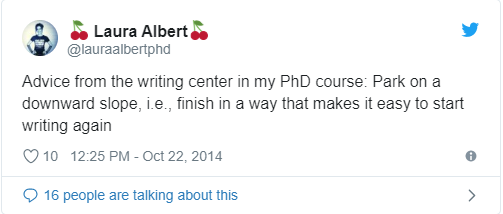When I was preparing for my preliminary exam, a friend gave me a copy of the 25th anniversary edition of On writing well by William Zinsser. I read it at once, devouring it in a couple of days. It instantly became one of my favorite books and is still my favorite book about writing.
Zinsser was a journalist and published many nonfiction in his career. On writing well is aimed at all types of nonfiction writing, and while it wasn’t written solely for academics, academic writers can benefit from following his guidance. Zinsser has a growth mindset for writers, and I continue to appreciate his encouragement. If I work at writing, I can get better.
I love On writing well because it’s the writing book that inspired me and encouraged me to be aspirational about what I want to achieve from writing. In contrast, I’ve found the books I’ve read about academic writing—some of which are excellent—to be more transactional in focus.
I have included an excerpt below about the importance of writing frequently and about the growth that will happen if we write on a regular basis.
You learn to write by writing. It’s a truism, but what makes it a truism is that it’s true. The only way to learn to write is to force yourself to produce a certain number of words on a regular basis.
If you went to work for a newspaper that required you to write two or three articles every day, you would be a better writer after six months. You wouldn’t necessarily be writing well—your style might still be full of clutter and clichés. But you would be exercising your powers of putting the English language on paper, gaining confidence and identifying the most common problems.
All writing is ultimately a question of solving a problem. It may be a problem of where to obtain the facts or how to organize the material. It may be a problem of approach or attitude, tone or style. Whatever it is, it has to be confronted and solved. Sometimes you will despair of finding the right solution—or any solution. You’ll think, “If I live to be ninety I’ll never get out of this mess.” I’ve often thought it myself. But when I finally do solve the problem it’s because I’m like a surgeon remove his 500th appendix; I’ve been there before.
William Zinsser, On Writing Well





